(1032 products available)






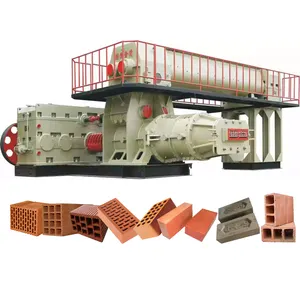














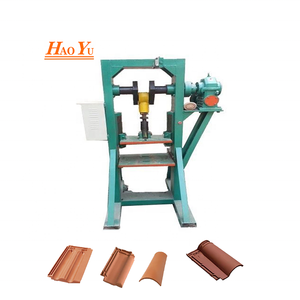





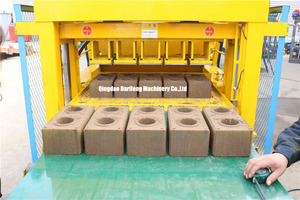



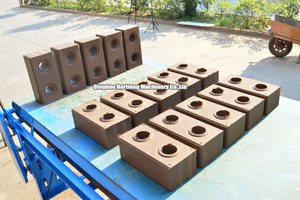

















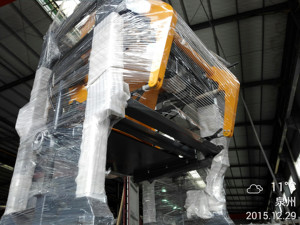

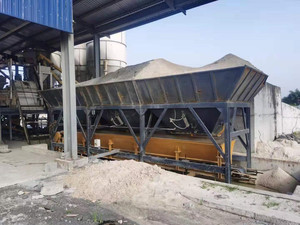
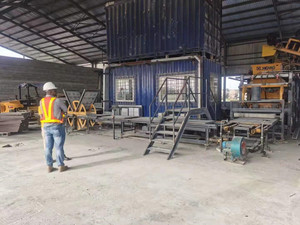


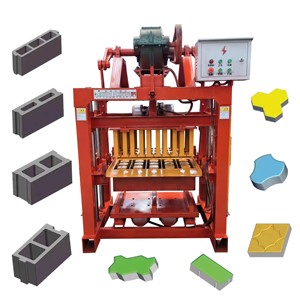

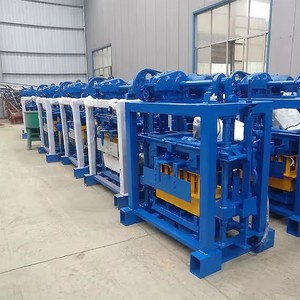



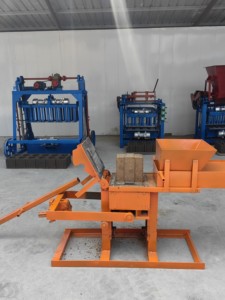



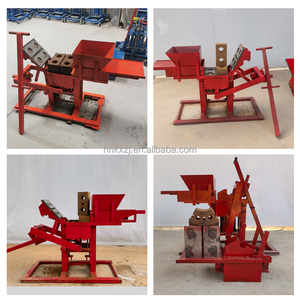














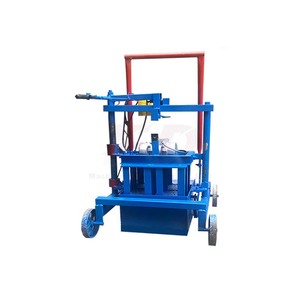
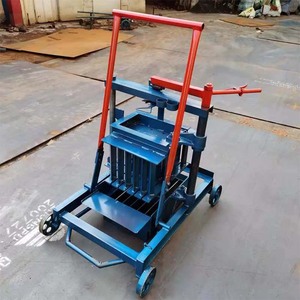

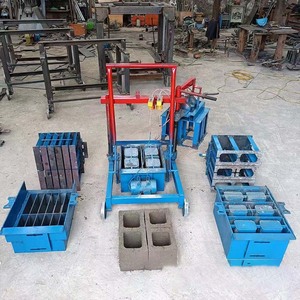

















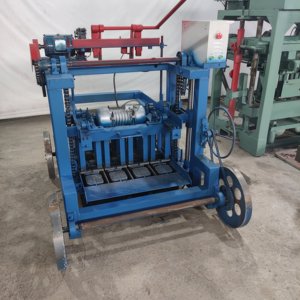



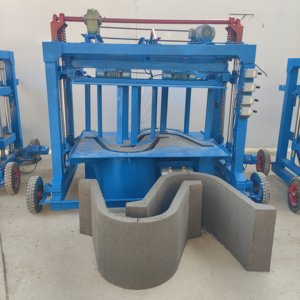









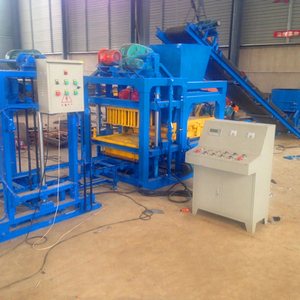

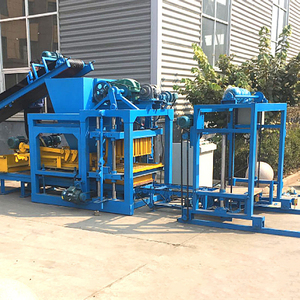


















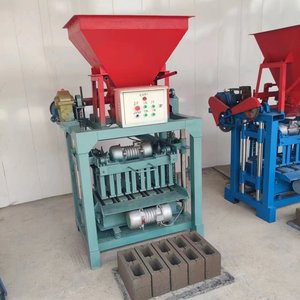
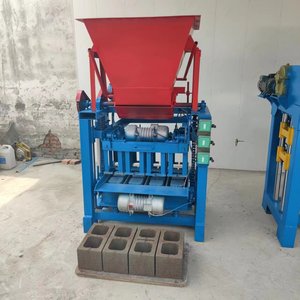








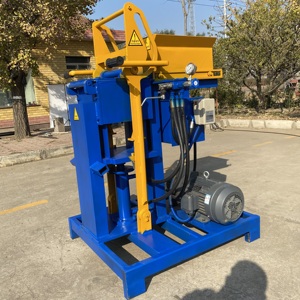
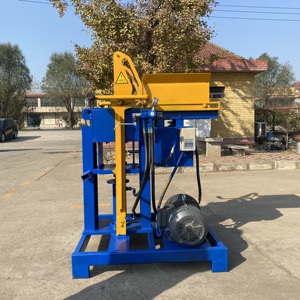

















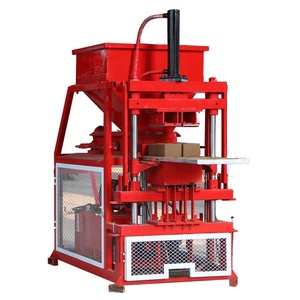

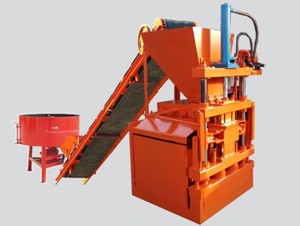


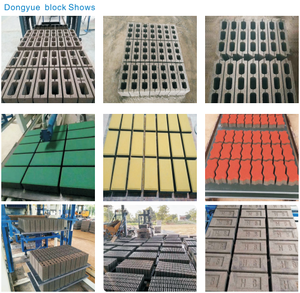
A clay brick making machine refers to specialized equipment that helps produce clay bricks used for construction purposes. Several types of machines are available, each with unique features and capabilities.
Manual clay brick press
The manual clay brick press is a traditional method of stamping out bricks. The machine offers low-cost brick production and doesn't rely heavily on external power sources. Operators place moistened clay into the press device, where they apply pressure manually to form the clay into the desired brick shape. The machine has advantages, such as being cost-effective but having limited production capacity.
Diesel-powered clay brick press
The diesel-powered clay brick press is similar to manual machines, but it uses a diesel engine's power for pressing bricks. The additional engine power enables operators to produce larger quantities of bricks. Businesses in areas with limited electricity access can benefit from using this pressing method. Although it offers higher production capacity than manual presses, the machine requires regular diesel refills.
Electric clay brick press
The electric clay brick press uses electrical power to press the clay into brick shapes. It has similar features to the diesel-powered press but offers more continuous production capabilities. Businesses that need higher volumes of bricks can fulfill demands efficiently with this machine. However, electricity is essential for operating the brick-making device.
Automatic clay brick making machine
An automatic clay brick making machine offers fully integrated production lines where automated material feeding, shaping, drying, and firing processes occur. Users can find large-scale production capacities that satisfy even the highest demands for brick quantities. Although the upfront cost of an automatic brick-making machine may be more, the long-term value of continuous and efficient production makes it worthwhile for industrial-level use. The fully automated features make operation simple; thus, a single operator can oversee the whole brick-making process from one location.
Interlocking clay brick making machine
The interlocking clay brick-making machine produces interlocking bricks or earth blocks. They can create rigid interlocking bricks without any large horizontal overlapping paths. The interlocking design provides strong structural integrity, and the assembly process doesn't demand complex skills. The easy assembly method makes it suitable for construction projects in remote locations. Apart from this, the building costs will also reduce considerably.
The clay brick press machine has various specifications based on the model and type. Here are some key specifications for this machine.
Capacity
The capacity of this machine varies according to its size, model, and type. The capacity is expressed either in hours or in one day. Various machines produce up to 1500 to 2000 pieces per hour. This capacity is possible if the machine has an automated feeding technique.
Power requirement
The power requirement in clay brick machines differs according to the use of hydraulic, electrical, and pneumatic power. Some models use 15 to 20 HP of electric power. It can reach up to 500 HP in large industrial setups.
Machine weight
The weight of small machines can be around 3000 to 6000 kg. Large industrial machines weigh more than 10000 kg.
Overall dimensions
A 5-step automatic clay brick making machine has overall dimensions of 4.5x2.5x2.6m. The machine has a feeding system, a mixing area, a molding unit, and a cutting unit.
Humidity and Temperature
The humidity and temperature must be controlled in the brick-making machine's storage areas. The clay soil's moisture content must be within 20% to 30% for optimal processing. The mixing and molding areas should be at a temperature of 20 to 25 degrees celsius.
Some parts of the clay brick-making machine require maintenance on a regular basis. It is important to check hydraulic oil levels every week and to do proper lubrication of transmission parts. The vibrating platform should be greased every 15 days. The filters of the hydraulic system should be changed every three months. The entire machine should be cleaned properly once a month. The belt drive should be adjusted every two months and engine oil should be changed every six months. Other parts that are exposed to water and mud should be cleaned and dried properly every week to avoid corrosion. A detailed maintenance schedule can be created with the help of the machine manual.
Japan clay brick-making machines are useful in many situations for making bricks. Here are some common usage scenarios for these machines:
Construction companies:
Large construction firms use Japan brick-making machines to produce bricks for their building projects. This lets them make a lot of bricks quickly that meet the exact quality and design needs for the buildings they are constructing.
Brick production plants:
Brick manufacturing facilities can use large-capacity Japanese machines as the main piece of equipment in their factories. The brick machines help the factories create a steady stream of bricks efficiently at high volumes for distribution to many different customers.
Rural areas with few resources:
Smaller, more portable brick-making machines from Japan are very useful in remote rural locations where it is hard to get building materials. Remote communities can use these compact machines locally to produce the bricks they need on-site for construction projects, reducing their reliance on supplies that have to be transported long distances.
Emergency relief efforts:
In the aftermath of a natural disaster like an earthquake or flood, humanitarian organizations respond to the emergency by providing assistance to affected communities. These groups often need to quickly build temporary shelters and facilities to help displaced people seeking refuge. Lightweight, portable brick-making machines equipped with clay as their primary raw material can be invaluable tools during such urgent situations. These machines allow humanitarian workers to efficiently produce sturdy, locally-sourced building materials on-the-spot using readily available clay, eliminating the need for lengthy transportation of pre-made bricks. This enables aid organizations to swiftly and sustainably construct shelters and infrastructure to support those in desperate need of safe housing in the wake of the disaster.
When purchasing clay brick machines for sale, buyers need to consider several crucial factors that affect their project choices and ultimately, their success. Always start by assessing the production capacity of automated clay brick-making machines. Look at the machine's bricks per hour measurement, then match that with the project's scale and desired output. It makes sense to invest in a more massive, high-capacity machine if the project is vast and vice versa for smaller projects. Consider the machine's level of automation. Machines with some human involvement, like semiautomated presses, may require fewer operators than fully manual machines. A manual clay brick-making machine in Japan will be more affordable, but it will also take more people to run effectively.
Is the machine easy to operate? Before buying it, walk through its operational processes and look at the training needs of the staff who will manage it. Research the machine's energy use. Look at the amount of electricity or fuel the machine will consume, and calculate that against the available energy in the area around the purchasing location.
Consider the durability of the material that composes the machine, especially the key moving parts, like the mixer, conveyor, feeder, and press. Warranty and support in case of breakdowns are key to long-term use and ROI. Check the warranty that comes with the machine, and ensure there is a supplier with local parts availability. Look at the resale value, as this can also affect the total cost of investment in the machine.
Finally, negotiate the best value for money. Prices are often flexible when bulk purchases are on the table, and discounts for repeat orders are worth exploring.
Q: How durable is the clay brick making machine?
A: The durability of a brick machine maker depends on several factors, like build quality, material, maintenance, and workload. The premium automatic machine has a sturdy build. Essential parts are made from wear-resistant steel. With proper maintenance, the machine can last for over ten years, even under heavy workload.
Q: Does the clay brick making machine need special installation?
A: A simple press-and-plug machine doesn't need special installation. But complex automatic machines need special installation so they can work well with other parts of the production line.
Q: Can users change the size of bricks made by the machine?
A: Yes, in machines with molds, users can change the size and shape of the brick by changing the molds. But this can only be done in machines with interchangeable molds.
Q: Does the clay brick making machine come with a manual?
A: Yes. It comes with a manual that shows how to operate it, maintain it, and change some parts.